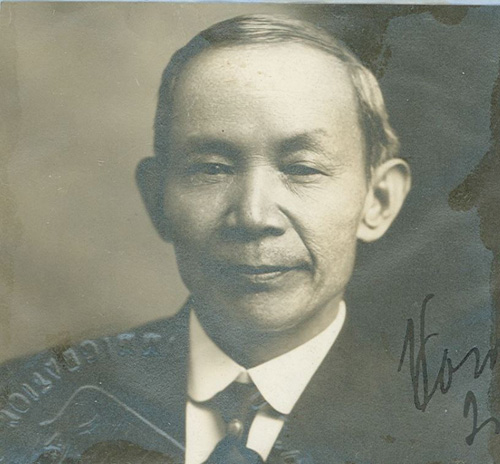From Railroader to Millionaire: The Story of Hong Sling
(Part 1/12)
In 1865, the Central Pacific Railroad faced a severe labor shortage. Many of the men who were originally hired had stayed only as far as the gold mines before quitting.
At the same time, tens of thousands of young Chinese men had traveled to California for the promise of gold. Central Pacific President J. Crocker suggested the railroad hire these available workers.
(Part 2/12)
Central Pacific Superintendent James Harvey Strobridge resisted President J. Crocker's suggestion.
Strobridge didn't believe the Chinese men could handle the grueling labor. Despite his reservations, he agreed to hire 50 men for one month, paying each worker $28 to do the very dangerous work of blasting and laying ties over the treacherous terrain of the high Sierras.
(Part 3/12)
Central Pacific's President J. Crocker was proven right. The Chinese railroaders were incredibly hard workers, and ultimately, an integral part of completing the Transcontinental Railroad.
By 1865, several thousand Chinese men were working for Central Pacific.
(Part 4/12)
A young man named Hong Sling came to America in September of 1875 after making an 8,000 mile journey from Canton, China, (today's Guangzhou, China,) to Hong Kong, China, before he arrived in San Francisco, California.
(Part 5/12)
Shortly after arrival, in 1875, Hong Sling was hired by Union Pacific as a section man in Wyoming. The work he did day-in and day-out involved replacing rotted ties, tamping loose spikes and tightening bolts.
(Part 6/12)
While working as a section man, Sling was approached by Union Pacific's General Superintendent, W.B. Doddridge. "You are working too hard, my lad," Doddridge said. Sling answered back, "No, I am not. We all have to work hard to hold our jobs."
(Part 7/12)
Impressed with Hong Sling's determination, UP's Superintendent W.B. Doddridge promoted Sling to the duties of a clerk on his private car. Sling didn't know it at the time, but his job working for Doddridge would change his life dramatically.
(Part 8/12)
Due to his devotion, Hong Sling was promoted to storekeeper for the Oregon Short Line in the 1880s. In 1892, he again was promoted, this time to General Manager for the World’s Columbian Exposition, which involved a move to Chicago, Illinois.
(Part 9/12)
After running the World's Columbian Exposition, Hong Sling transitioned to the position of Chinese Passenger Agent in Union Pacific's Passenger Department, where he stayed for the rest of his career with Union Pacific.
(Part 10/12)
In addition to his job at the railroad, in the late 1890s, Hong Sling opened a Chinese grocery store. Eventually, Sling's store grew into Hong Fong Lo, a company which operated several stores and restaurants in Chicago’s Chinatown. Sling was the President of Hong Fong Lo.
(Part 11/12)
In addition to his store and restaurant businesses in Chicago, Hong Sling invested in properties and businesses in Hong Kong, Panama and Cuba.
(Part 12/12)
Hong Sling retired from the railroad in 1919. At his retirement, his co-workers praised his devotion to duty, and claimed his record of sterling honesty could not be equaled.

